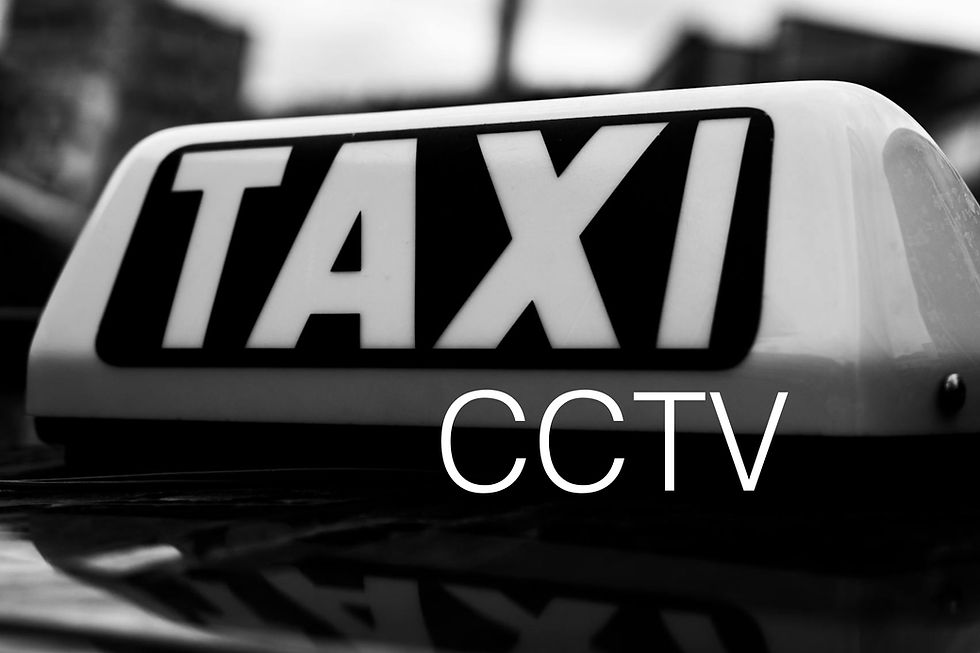Gosport confirms mandatory taxi CCTV cameras with audio trigger and strict data rules
- Perry Richardson

- Oct 21, 2025
- 3 min read

Gosport Borough Council has confirmed a mandatory camera policy for all licensed taxis and private hire vehicles, setting rollout dates, audio recording limits and detailed technical standards. The policy aims to strengthen passenger and driver safety, and improve evidence quality in investigations.
From 1 October 2025, any newly licensed or transferred vehicle must be fitted with a compliant in-vehicle camera system. All existing licensed vehicles must be equipped by 1 January 2027. Substitute vehicles issued after accidents must also meet the standard before being temporarily licensed. Systems will record to onboard devices and will not be actively monitored.
The council says cameras are being introduced to protect drivers from false allegations, and support police and insurers after incidents. Security in vehicles remains a priority, with the council noting the value of clear images to identify suspects and resolve complaints. Vehicle owners must maintain equipment so it remains in good working order and available for footage downloads when requested by authorised officers.
Each vehicle must have a designated data controller registered with the Information Commissioner’s Office. The data controller is responsible for compliance with the Data Protection Act 2018, handling storage, disclosure and subject access requests. Licensing officers will require evidence of initial ICO registration and annual renewal.
Audio recording is limited. Systems must only capture sound when a driver presses a panic button. Continuous audio is prohibited. Drivers are expected to activate audio only when they believe there is a risk to safety, when facing harassment or abusive language, or during payment disputes or concerns over possible vehicle damage. Once triggered, the system records audio for five minutes and can be reactivated if necessary. Audio must be embedded within the video file and cannot be stored separately.
Signage inside vehicles is required to tell passengers that cameras are operating and that audio may be used if triggered. At least one sign must be in place at each passenger entry point and positioned for visibility without blocking views. Drivers should inform visually impaired passengers about the presence of cameras and the possibility of audio recording. The proprietor is responsible for keeping both equipment and data secure. Breaches will be treated as serious licensing matters.
The policy sets clear parameters for downloading and retaining data. Footage may be retrieved by the nominated data controller for lawful requests, or by licensing or police officers. Data retrieved by the licensing authority will be kept for set periods that depend on case outcomes, including ten years after prosecutions, three years for cautions or written warnings, and six years for subject access requests.
Technical requirements are extensive. Systems must use shock-resistant solid-state or ruggedised storage. Images must be encrypted to at least FIPS 140/2, preserved during power loss, and recorded with date, time, vehicle speed, number plate and licence number stamps. The storage unit must be separate from the camera head, concealed from passengers and firmly affixed. Wireless downloading is not permitted and mobile data cannot be used for GPS functions. The system must support timed overwriting to maintain a rolling archive of at least thirty days at HD1 quality or better.
Cameras must capture every passenger and the driver, including in partitioned vehicles where multiple camera heads may be needed. Up to four cameras can be supported to cover larger or purpose-built vehicles. Installations must not obstruct the driver’s vision or mirrors, and only approved installers may fit or adjust equipment. A driver-visible health indicator is required to show when the system is operating or has a fault.
Operation rules extend beyond the ignition. Units must function for at least twenty minutes without power from the ignition and continue recording images for thirty minutes after the engine is switched off, with audio where applicable. Download ports must be accessible to authorised personnel without removing panels, and playback software must allow filtering by date and time to locate events quickly.
The policy underlines the council’s focus on evidential quality and privacy safeguards. By limiting audio to panic-button activation and tightening custody, encryption and retention controls, Gosport is seeking to balance safety benefits with data protection duties placed on proprietors and drivers. With hard deadlines now in place, operators will need to budget for compliant systems, plan installations, complete ICO registrations and train drivers on lawful use of audio triggers and data handling.








